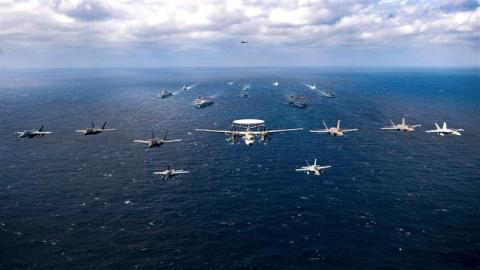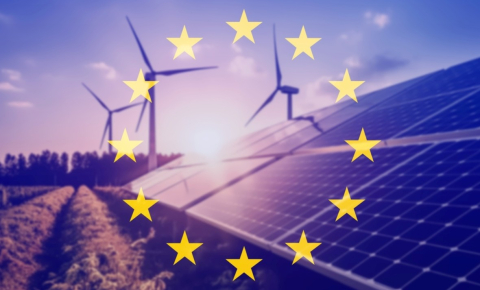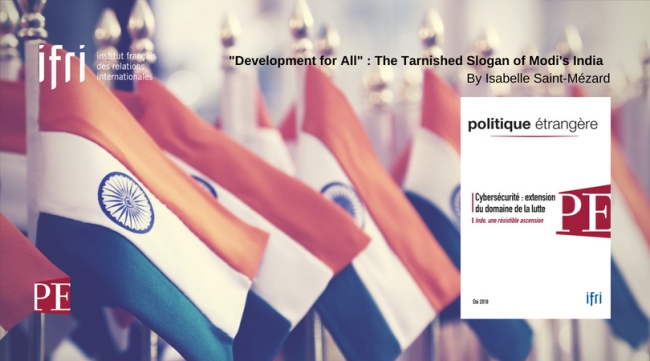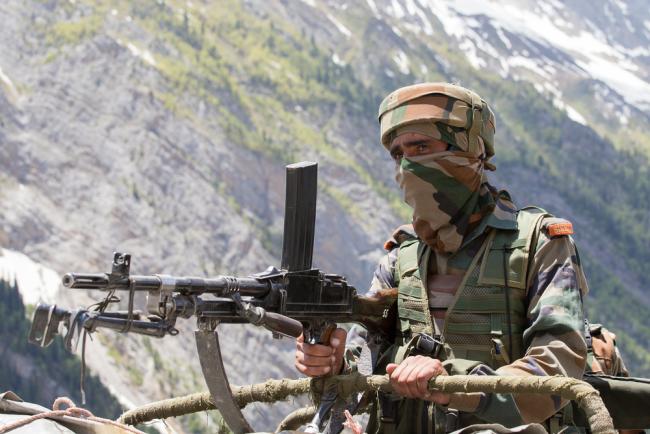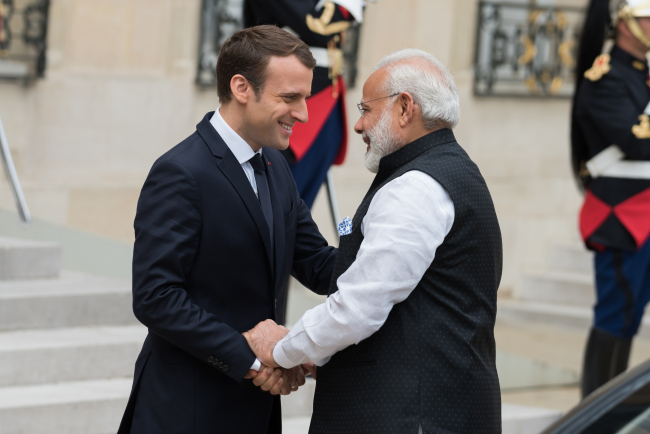India
Through its "multi-alignment" diplomacy, Narendra Modi's India is an essential partner for the Indo-Pacific powers, while retaining its freedom to cooperate with Russia and Iran. Its main rival remains China.

India’s Power Games, between Ukraine and the G20
India’s drive for power merits examination in the light of New Delhi’s abstention on Ukraine, and its stated objectives for its presidency of the G20.
“Development for All”: The Tarnished Slogan of Modi’s India
Narendra Modi’s BJP (Bharatiya Janata Party) has held an unprecedented majority since the 2014 elections.
The Kashmir Uprising and India-Pakistan Relations: A need for conflict resolution, not management
This paper analyses the causes and consequences of the 2016 uprising in Kashmir, making six interrelated arguments.
Economics in Narendra Modi’s Foreign Policy
A distinct feature of Prime Minister Narendra Modi’s first year in office was the remarkable speed and alacrity with which he moved on external engagement. During his first twelve months as Prime Minister, he travelled to almost twenty countries in different parts of the world. Indeed, Modi appeared to be guided by the impression that high rates of economic growth cannot be generated only by domestic policies and initiatives.

Narendra Modi’s India
The Indian People’s Party (BJP) coming to power in the 2014 legislative elections raises many questions about the country’s governance.
France, Germany, Turkey: A New Triangle of Powers
Relations between Germany, France and Turkey have been strictly bilateral for a long time, with varying intensity, styles and areas of cooperation. The European perspective that is now part of these relations has introduced a three-way dynamic.
The Expanding Chinese Footprint in Latin America: New Challenges for China, and Dilemmas for the US
The physical presence of China in Latin America is entering a phase of significant expansion, as the logical consequence of the rapid growth over the past decade of its trade, investment, and infrastructure for doing business in the region.
Russia, China and the United States: From Strategic Triangularism to the Postmodern Triangle
Over the past decade, there has been much talk about a new world order, in which American "unipolarity" would be superseded by more equal arrangements between the great powers. One such idea is a return to the Russia-China-US triangle. In truth, however, the time for such geopolitical schemes has long passed.
India's Modi heads to Paris as co-chair of AI summit
Indian Prime Minister Narendra Modi is visiting France from Monday as co-chair of an international summit on artificial intelligence in Paris that is expected to be attended by industry leaders, including executives from OpenAI and DeepSeek.
Support independent French research
Ifri, a foundation recognized as being of public utility, relies largely on private donors – companies and individuals – to guarantee its sustainability and intellectual independence. Through their funding, donors help maintain the Institute's position among the world's leading think tanks. By benefiting from an internationally recognized network and expertise, donors refine their understanding of geopolitical risk and its consequences on global politics and the economy. In 2024, Ifri will support more than 70 French and foreign companies and organizations.






